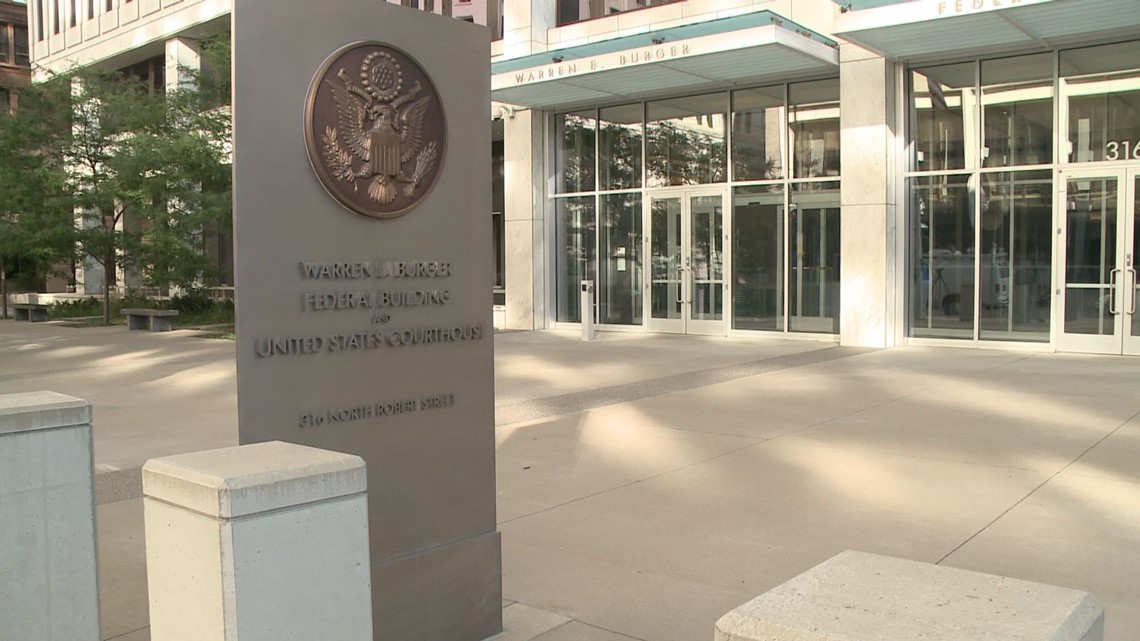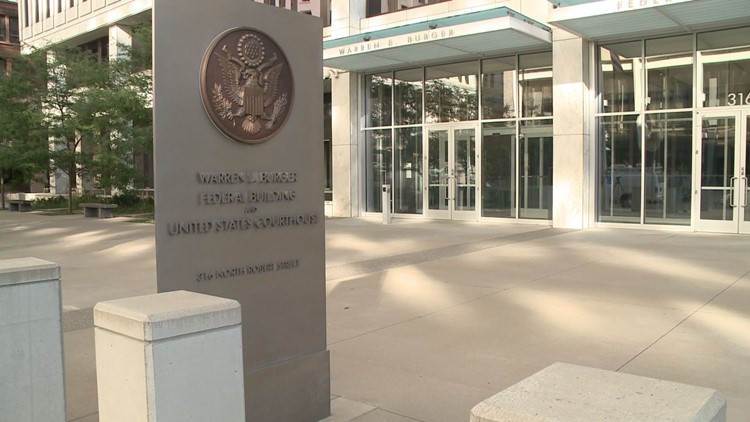Kare11
Report: Fewer nursing home beds in rural MN


The Center for Rural Policy and Development published a new report that found rural Minnesota counties have 41% fewer nursing facility beds compared to 2005.
MINNEAPOLIS — The healthcare crisis across rural America just keeps growing.
A new report from the Center for Rural Policy and Development out of Minnesota shows that demand for long-term care for the elderly will skyrocket over the next 20 years.
Experts say the biggest hurdle will be to try and staff for that increase.
The University of Minnesota’s Rural Physician Associate Program is matching about 35 of its medical students a year to more rural areas where they learn a broader skillset and become well-known in the community.
“If we can get students to experience that in our program, they’re three times more likely to practice in a rural spot,” said U of M Professor Dr. Kirby Clark. “We don’t focus just on physicians because by themselves, without a team, is pretty worthless, so we promote all the other health professions that a community needs.”
The need extends beyond doctors and includes recruiting pharmacy techs and nurses, particularly at nursing homes, and the problems have forced many to shut their doors.
In Minnesota, eight nursing homes closed in 2023. In the three years before that, there were another 15, including one Jenny Gleason oversees.
“It was excruciating,” said Gleason, who’s the CEO of Living Services Foundation which has several facilities in southwest Minnesota. “People were just heartbroken because it becomes their community.”
Gleason converted that one closed facility to assisted living in 2021, citing staffing shortages.
“When we are constantly searching and calling everyone to see if you can work overtime, can you do this, like everyone is stressed,” said Gleason. “And it’s not that people don’t want to do a good job or be there, but they need balance too.”
The new report says demand for nursing beds won’t peak for at least another 20 to 30 years when its data shows more than 37,000 people will need one.
It also shows patients are sicker, reimbursement rates are low and some wages are higher.
Some of those wages will go up even more as the state’s newly formed workforce standards board voted to start raising minimum pay and benefits in 2026.
“Figuring out how to get the cash upfront to fund that is really, really challenging, especially after going through COVID-19 when organizations like mine put every extra penny we had into just making it through,” said Gleason.
The most severe declines are happening in Red Lake County, which lost all of its beds. Cass Lake County only has 33 beds left, followed by Grant and Swift Counties.
The report says Chippewa County is the only one to have more beds because the Department of Veterans Affairs built a new facility just this year.
In the meantime, other locations have to keep getting creative with recruitment and some say they’ll push for fewer barriers, including the new, federal minimum staffing requirements.
Kare11
Eden Prairie man sentenced for COVID relief fraud


The 75-year-old is accused of spending the Paycheck Protection Program money on himself.
ST PAUL, Minn — An Eden Prairie man was sentenced to seven years behind bars for Covid relief fraud, with officials saying he applied for more than $2.1 million in funds which he spent on himself.
U.S. Attorney Andrew M. Luger announced in a press release Harold Bennie Kaeding, 75, of Eden Prairie was sentenced to more than seven years in federal prison. He was convicted of wire fraud, aggravated identity theft, and money laundering.
In the first three months of the Covid-19 pandemic, Luger said Kaeding used the name of close family members to submit loan applications for different corporate entities, that were either defunct or not in existence when the pandemic began.
Kaeding was accused of fabricating tax documents, manufacturing bank statements, and submitting records to ensure the applications appeared legitimate. He initially received $1,642,670, Luger said, but banks realized the irregularities and were able to get some of the money back.
“Among other things, Kaeding used the money to get his personal residence out of impending foreclosure, purchase an SUV, and stockpile more than $80,000 in cash,” Luger said.
Kaeding was arrested in Columbia, where officials say he fled to when he learned he was under investigation. He was found guilty at a jury trial in August.
Kare11
Incoming City of Orono leadership looks to mend ties with City of Long Lake


A rift between the communities began years ago when the City of Orono decided to create their own fire department.
ORONO, Minn. — Orono is on track to replace four of their current five leaders next year, including their mayor. Challenger Bob Tunheim beat incumbent Denny Walsh with two-thirds of the votes this election. Tunheim has a background as an attorney and previously served as a school board chair during the pandemic.
His top priorities? Rebuilding trust with residents and mending the relationship with neighboring city Long Lake.
“I am eager to begin rebuilding trust and am confident that we can find a practical solution that benefits all parties while fully addressing Orono’s public safety needs,” Tunheim said.
Two new city council members were elected in Orono, too. Just last week, one city council member that wasn’t up for re-election resigned.
“I think people are interested in being sleepy little Orono in the western suburbs again,” councilmember elect Steve Persian jokingly said.
Persian, who was once a fire chief of Long Lake, feels the residents have spoken and it’s time to move forward with more civility in the city. One of his goals is to re-unite the Orono Fire Department with Long Lake. Something the previous administration was against.
In 2021, Orono Mayor Denny Walsh began taking steps to sever ties with Long Lake and build their own fire department. The two cities have shared a fire department together for 100 years. Walsh said at the time, Orono owned 85% of the service area and owned the majority of the equipment which led to them wanting to have control over their own department.
The division not only was highly scrutinized by residents but led to a lawsuit filed by Long Lake.
“We had to get an injunction, the City of Orono was held in contempt, twice. It’s been a lot of stress on our fire fighters most importantly,” Long Lake Mayor Charlie Miner.
Miner says the current fire contract between the cities expires in 2025. He says the city of Long Lake is delaying their trial date with hopes the cities can reach an amicable agreement.
Kare11
Robbinsdale school district facing major budget shortfall


The district expects somewhere between a $19-21 million budget shortfall for the 2025-2026 fiscal year.
NEW HOPE, Minn. — The Robbinsdale Area School District is facing major financial challenges, as budget shortfalls are expected to reach multiple millions of dollars for the 2025-2026 fiscal year. The district announced that for that fiscal year, they’re expecting a budget shortfall of $19-21 million.
“Our financial situation is not as positive as we had planned,” district Chief Financial Officer Kristen Hoheisel said.
Hoheisel anticipates the district to enter Statutory Operating Debt at the end of the 2024-2025 fiscal year. That means the district will need to submit a corrective financial plan to the Minnesota Department of Education.
That status is triggered when the district’s year-end deficit is more than 2.5% of its annual operating expenses.
District Superintendent Teri Staloch says part of the shortfall comes from them not cutting enough. They were set to cut $17.4 million for the current fiscal year – instead cutting much less.
“The amount we are actualizing out of that reduction is actually $3.4 million,” Staloch said.
In addition to that, district leaders say their current situation comes from “an error in the implementation of the budget process.” They say nearly $20 million dollars, which comes from compensatory funding, was counted twice, leading the district to over-state their available resources.
Both Hoheisel and Staloch say they don’t know the reason why that money was counted twice, saying that happened before they were in the district.
Staloch says this will lead to more cuts and changes to the district.
“It’s going to be inevitable that staff reductions are made,” Staloch said.
She also says they’ll look at academic programs and potentially closing buildings.
There’s a town hall to address the state of the budget with district leaders Wednesday, November 20, at 6:30 p.m. That town hall will be held at Cooper High School.



